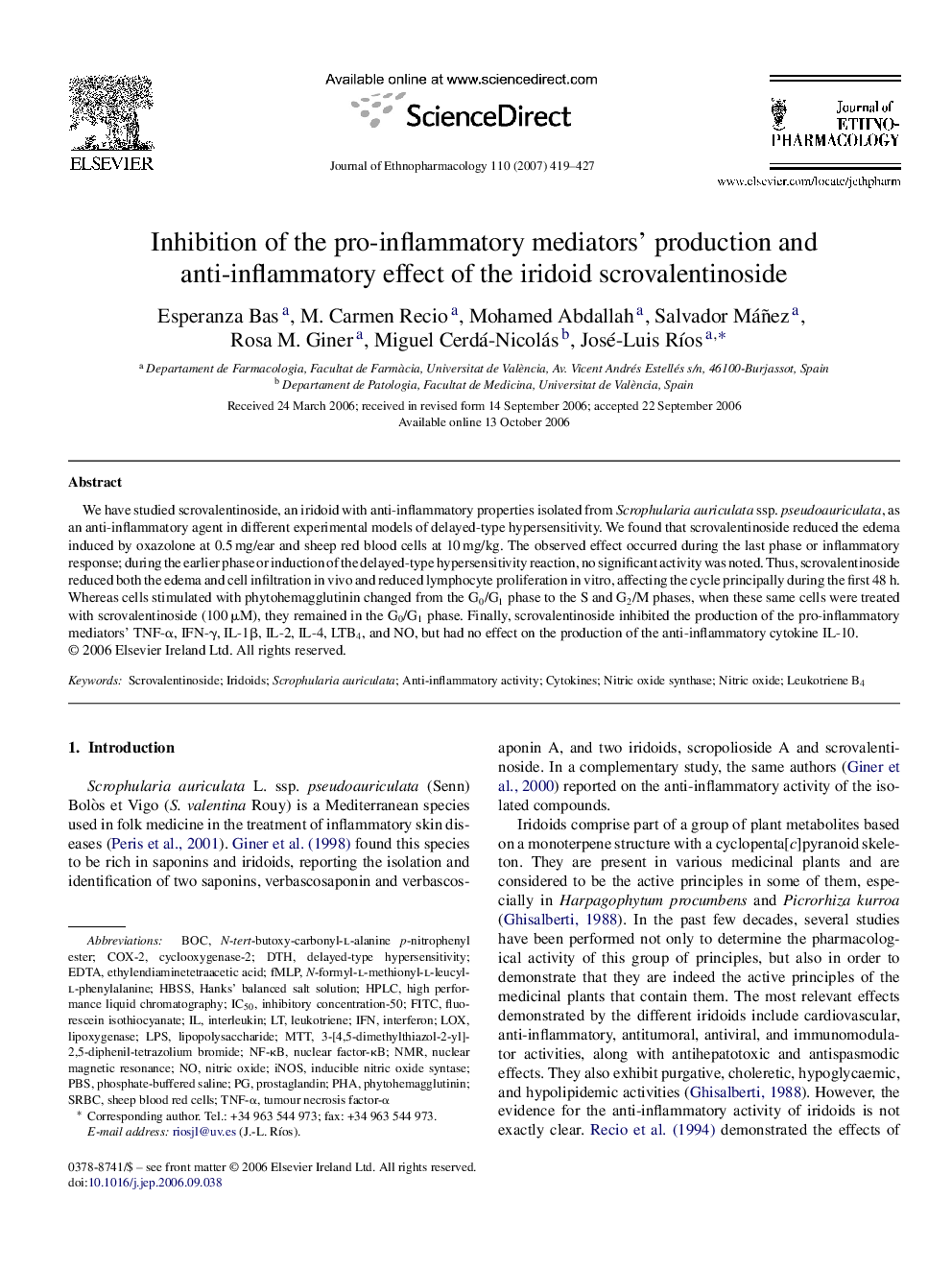| Article ID | Journal | Published Year | Pages | File Type |
|---|---|---|---|---|
| 2547324 | Journal of Ethnopharmacology | 2007 | 9 Pages |
We have studied scrovalentinoside, an iridoid with anti-inflammatory properties isolated from Scrophularia auriculata ssp. pseudoauriculata, as an anti-inflammatory agent in different experimental models of delayed-type hypersensitivity. We found that scrovalentinoside reduced the edema induced by oxazolone at 0.5 mg/ear and sheep red blood cells at 10 mg/kg. The observed effect occurred during the last phase or inflammatory response; during the earlier phase or induction of the delayed-type hypersensitivity reaction, no significant activity was noted. Thus, scrovalentinoside reduced both the edema and cell infiltration in vivo and reduced lymphocyte proliferation in vitro, affecting the cycle principally during the first 48 h. Whereas cells stimulated with phytohemagglutinin changed from the G0/G1 phase to the S and G2/M phases, when these same cells were treated with scrovalentinoside (100 μM), they remained in the G0/G1 phase. Finally, scrovalentinoside inhibited the production of the pro-inflammatory mediators’ TNF-α, IFN-γ, IL-1β, IL-2, IL-4, LTB4, and NO, but had no effect on the production of the anti-inflammatory cytokine IL-10.
